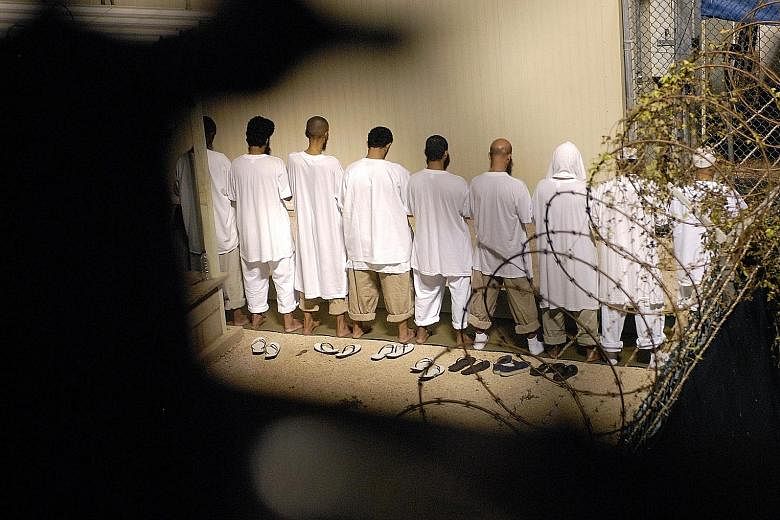The terror suspects held at the Guantanamo Bay detention centre in Cuba were rounded up overseas after the Sept 11, 2001 attacks in the United States.
Many have been held for years without charges or trial.
Of the 91 remaining detainees, 34 have been recommended for transfer, and a parole-like review group has been adding names to the list.
But each man presents a problem: The US government has to find a place that is willing to take him, and can be trusted to keep an eye on him without abusing him.
In cases where the men cannot be repatriated to their home countries because of the security situation there or the human rights record, the US has brokered their transfer to third-party countries willing to accept them, including in Europe and places such as Bermuda, Cape Verde, off West Africa, and the Pacific island nation of Palau.
Many of the detainees were from Yemen, and they cannot go back, given the country's collapse into civil war. In January, 10 Yemenis were sent to Oman, in the largest single transfer from Guantanamo since US President Barack Obama took office in 2009 and made a pledge to shut the centre.
Republican lawmakers who oppose the facility's closure, however, have frequently criticised the transfers, noting that some have gone on to engage in terrorist activities after their release.
Human rights groups, meanwhile, have criticised the rare instances when the US has forcibly repatriated detainees to countries that have questionable records on human rights. For example, some rights groups have accused Morocco of torturing terrorism suspects, although American officials say the country has lived up to diplomatic assurances not to abuse former Guantanamo detainees.
The Moroccan government initiated prosecutions of all 11 Moroccan citizens repatriated from Guantanamo during Mr George W. Bush's presidency. Four were convicted and the rest were released for insufficient evidence, according to a leaked cable released by WikiLeaks.
Three of the 11 reportedly went to Syria and were killed in the civil war there, in the course of fighting with an Islamist rebel group.
NEW YORK TIMES, REUTERS, XINHUA

